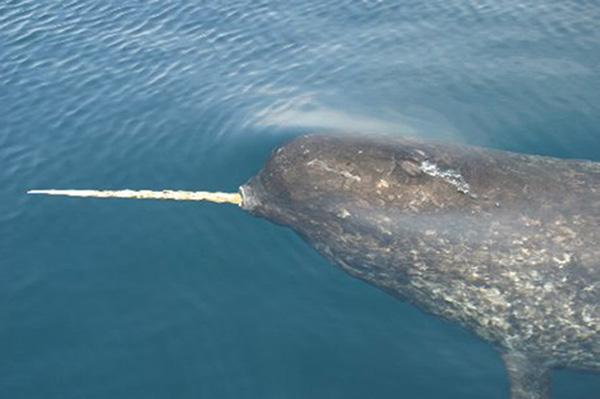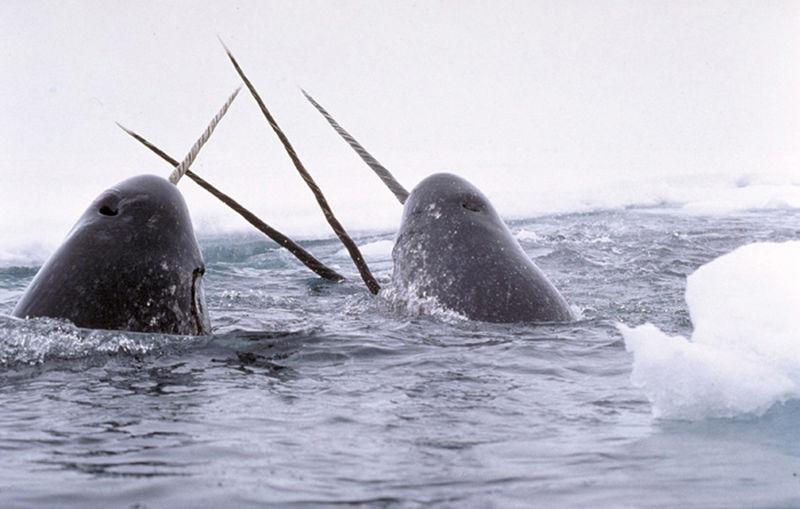Wildlife North America . com North American Animals - mamals, birds, reptiles, insects |
Narwhal (Monodon monocerus)
Narwhal. Spaniard's Bay Newfoundland. Photograph by K Bruce Lane. License: Free Art license. (view image details) 
Narwhals tusking. Photograph by US Federal Government. License: Public Domain. (view image details)
NARWHAL FACTS
DescriptionAdult Narwhals are brown or dark gray above with whitish underside. The body has mottled pattern of spots. The head is small with blunt snout. The flippers are short and rounded and there is no dorsal fin. Narwhals have two teeth in the upper jaw. The right tooth usually remains small and the left one grows into a long tusk that can grow to 3m long and weigh over 10kg. Sometimes two tusks are grown. The tusk is straight with anti-clockwise spiral pattern. Size Length: males 3.6m - 6.2m excluding tusk (average 4.7m); females average 4.1m. Weight: males 1600kg; females 960kg Environment deep water not far from pack ice. In summer found in deep bays and fjords Food squid, fish and crustaceans Breeding A single calf (rarely twins) is born after a gestation period of about 15.3 months. The calf is about 1.5m - 1.7m long at birth and weighs about 80kg. Weaning is thought to be at about 20 months. Females give birth to a calf about every 3 years. Range eastern Canadian Arctic to central Russia. Uncommon in Alaska and western Canadian Arctic. Most often found above the Arctic Circle Notes According to the National Institute of Standards and Technology (NIST), the Narwhal tusk has millions of nerve pathways connecting the outside of the tusk to a central core of nerves leading to the brain. Based on experiments with samples of the tusk as well as with a captured narwhal whale, the research team found that the tusk sensory system may be capable of detecting changes in temperature, pressure, salinity and other factors that may help a narwhal survive its Arctic environment. Classification
Home | Mammals | Reptiles | Birds | Insects | Privacy Policy | Disclaimer | Contact Us |